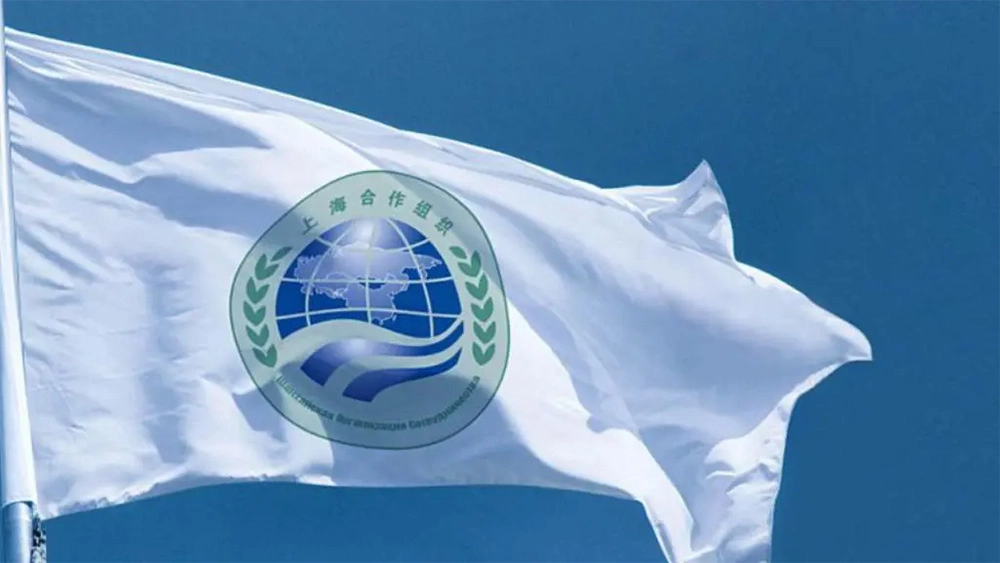7/23/24 More countries want to join the Shanghai Cooperation Organisation as full members
Several countries want to upgrade their relations with the Shanghai Cooperation Organization (SCO), the group’s Secretary-General Zhang Ming has stated. The SCO is a multifunctional trade, security and geopolitical alliance formed in 2001 by China, Russia, Kazakhstan, Kyrgyzstan, Tajikistan and Uzbekistan, primarily to deal with the repercussions of the United States and NATO invasion of Afghanistan, which ultimately led to 130,000 NATO troops occupying the country. NATO withdrew from Afghanistan in 2021.
Since then, the SCO has grown and accepted Belarus, India, Iran and Pakistan as additional full members. The group also has two other categories: “Observers” which include Afghanistan, and Mongolia, and “Dialogue Partners” which includes Azerbaijan, Armenia, Bahrain, Cambodia, Egypt, Kuwait, Maldives, Myanmar, Nepal, Qatar, Saudi Arabia, Sri Lanka, Türkiye and the UAE.
The SCO full members represent 40% of the world’s population, with them contributing about US$23 trillion (30%) of global GDP. Additional expansion will increase this further.
The 2024 SCO annual Heads of State meeting recently took place in Astana. At that event, Belarus was promoted to full member status. Now, Armenia, Azerbaijan Cambodia, and Sri Lanka have all applied to change their status from dialogue partner to observer. This change is usually considered a stepping stone on the way to full membership in the SCO. Bangladesh, not currently involved in the SCO, has also indicated it too wishes to become an observer.
According to Mehrdad Kiaeei, Iran’s National Coordinator at the SCO Secretariat, the organization is considering these membership status adjustments and will reach conclusions after coordination with the applicants and member states.
Full membership offers more active participation in the SCO, ensured security as well as additional opportunities for economic development.
The inclusion of Armenia and Azerbaijan, both in the Caucasus region between the Black and Caspian Seas, would positively impact the structure of the region’s security in general and the Eurasian region in particular. Georgia, the third Caucasus nation, is experiencing some political difficulties at present, while SCO full member Iran and dialogue partner Turkiye are both regionally influential, especially in trade and new logistics and transport routes such as the Middle Corridor and International North-South Transportation Corridor. These intersect at Baku, Azerbaijan.
Cambodia, Sri Lanka and Bangladesh in Southeast Asia are important regional countries and, given that the situation is unstable in Myanmar, could add to security and stability in the region. If the security component continues to expand within the SCO framework, it would also be possible to launch joint security projects, such as, for example, establishing military bases in these countries.
Bangladesh is also a member of the BRICS New Development Bank (NDB) and is expected to officially join an expanded BRICS in due course. Cambodia and Sri Lanka have also expressed interest in the BRICS. SCO members China, India, Iran and Russia are also full members.
The European Council of Foreign Affairs has stated that it regards the SCO as a rogue security alliance and NATO also regards it as a potential military rival. However, given that India is a full member of the SCO and that ten of the member states do not maintain a uniformly hostile approach to the United States or Europe, this may be scaremongering on the part of the West. The SCO requires consensus by member states to make policy decisions and therefore a divergence of views among SCO countries may hamstring the SCO’s ability to project power on behalf of China or Russia — the West’s main concern. Also, SCO security initiatives have been relegated largely to uncontroversial matters such as anti-drug trafficking and anti-terrorism.
Nevertheless, the movement of previously heavily Western-influenced countries such as Armenia, Bangladesh and Sri Lanka into SCO full member candidates does indicate that previously well-established colonial links are well and truly being severed and that these nations see their trade and security futures with their own mini-pivots to Asia.


 REAB Services
REAB Services

 News
News
 Useful tip
Useful tip
